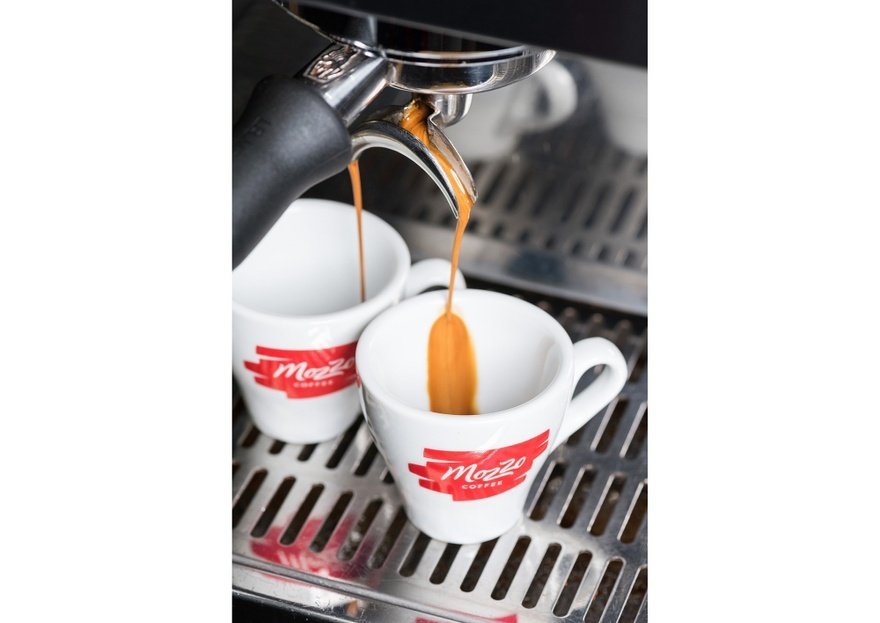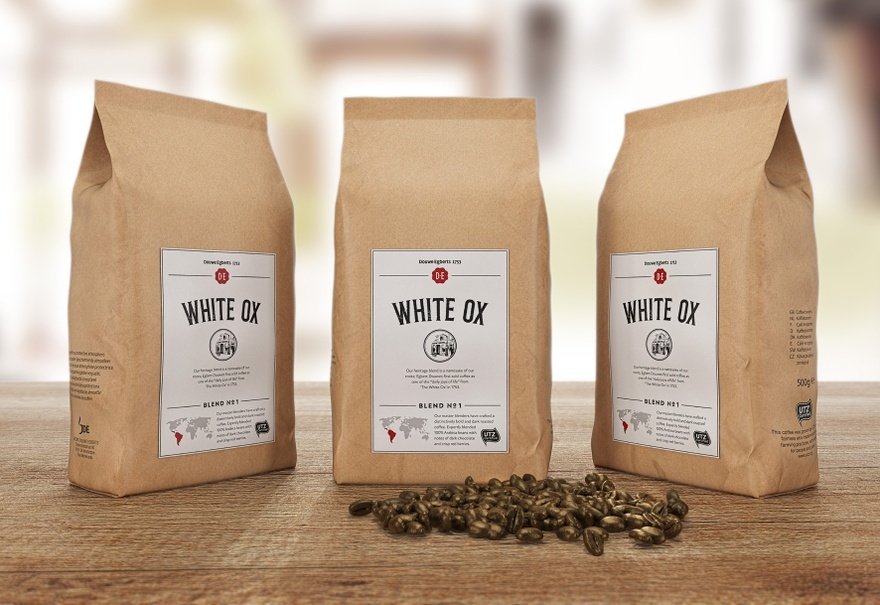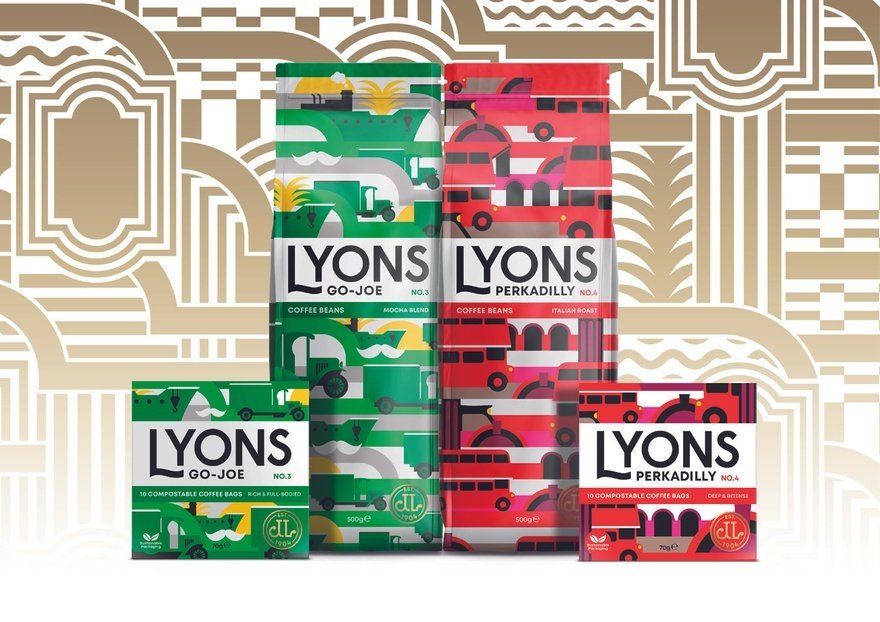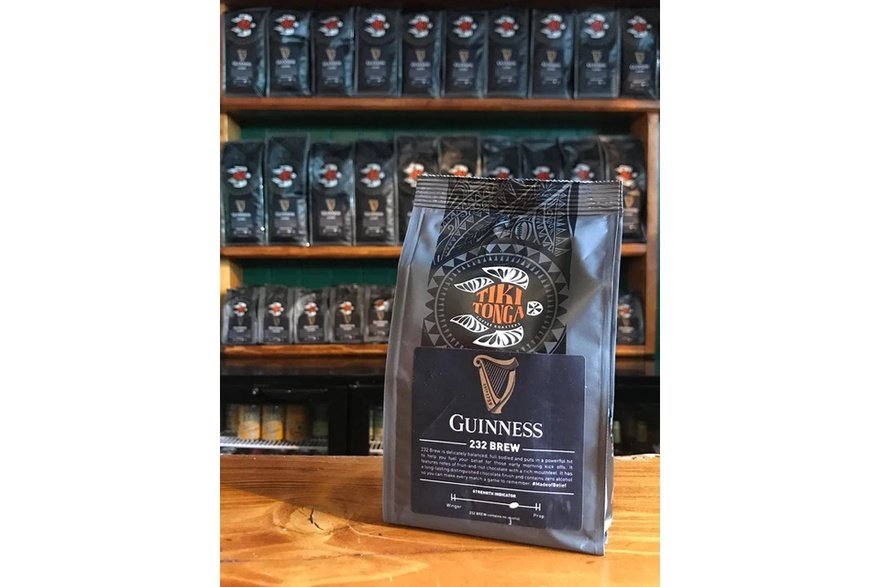The consumer trend for vast, milky coffees may be turning a corner, with drinkers opting for darker, more intense blends where milk is optional. Ian Boughton investigates
It is always said that the big change in the British taste for coffee came with the explosion of the coffee-house scene, when the chains created dark-roasted coffees to ‘cut through' the milk used in lattes and cappuccinos. In recent years the fashion changed to lighter-roasted ‘speciality' coffees – and now it is changing back again.
The enthusiasm for light roasts was a mistaken trend, says Grant Lang, founder of Mozzo Coffee: "The ‘third wave' of coffee led a drive towards lightly roasted espressos, served with a huge focus on ‘acidity' – and rather than being led by consumer demand, well-meaning roasters and baristas pushed these lightly roasted coffees upon consumers."
But the average consumer may not have been so keen on them as the coffee geeks.
"The coffee that has stood the test of time is a balanced profile that achieves the evenness of bitter and sweet flavours. As 80% of drinks are still served with milk, those high-acidity, light, bright coffees simply don't cut through the milk – they get lost.
"A result of this is the ‘return to Robusta', and roasters and baristas are now realising the value of a good, clean Robusta in a blend. As a rough guide to the coffee tastes and habits we are now seeing in the UK, only 10% of our sales are comprised of lighter-roasted, 60% of medium-profile Arabica, and 30% is a darker, more classical espresso featuring Robusta."
Robusta, one of the two commercially grown species of coffee – the other being Arabica – was previously considered inferior by the coffee connoisseur but is now re-emerging in coffee shops for those wanting a stronger coffee.
Tastes have changed, but not in the way that everybody expected, agrees Marco Olmi of Drury: "The ‘speciality' agenda is a very small minority, and the way to tell is by sales figures – our Rainforest Alliance blend, which is a clean-tasting, not too light, not too dark, a ‘middle-of-the-road in the nicest way' coffee, is overtaking everything else. The same goes for our Gunnery blend, which is rapidly becoming our second-best seller. These are bridges between ‘speciality' coffee and ‘commodity' coffee – tasty, but not too acidic, not too fruity, and not too ‘modern'. While tastes have changed to ‘better coffee', they have not changed to ‘essence of hollyhock'!"
"There were two significant influences on the UK consumer's taste preference," says Martyn Bell at Jacobs Douwe Egberts. "The coffee revolution was driven by Italian influences – strong, intense, and with a dark roast profile. An earlier significant influence was the influx of instant coffee brought into the UK by American troops – still a ‘strong' coffee flavour, but smoother than espresso. Both are fairly dark coffee styles rather than the more subtle flavours associated with lightly roasted beans.
"The prevalence of strong, dark coffee is reinforced by the ‘need-states' in which people drink them. Indulgence is significant in coffee shops, but there is the functional need to wake up and re-energise. Most regular caterers looking to satisfy the greatest number of consumers should offer strong, dark roast coffee profiles, which will give most customers exactly what they want."
Not surprisingly, Jacobs Douwe Egberts' recent launch of White Ox describes it as "a distinctively bold and dark roasted coffee, displaying notes of dark chocolate and red berries, which makes it the perfect base for a wide variety of coffee drinks".
Strong and dark does not mean overwhelming, says Stuart Wilson, managing director at Lost Sheep Coffee: "We have a generational thing going on here. The baby-boomer generation grew up recognising almost acrid, bitter flavour of burnt instant as ‘the taste of coffee'. But younger generations do not like bitterness, and want to actually taste the flavour of the coffee.
"They are also fairly health-conscious, so the average millennial will order a black coffee or a flat white, which is a smaller milk drink. We find that people enjoy our ‘daily coffee', the signature ‘Get to the Hopper' blend, because it is smooth, has a good body and true chocolatey richness if served in milk, but it certainly doesn't ‘kick like a mule'. It is by far our most popular blend."
Indulgence is significant in coffee shops, but there is the functional need to wake up and re-energise
Down with dairy?
Are consumers really turning to black coffee?
"A high street that was dominated with milk-based drinks is now seeing a rise in black coffee drinkers," says Phil Smith, head of category at UCC. "This mirrors current health trends, with many consumers skipping milk entirely.
"However, operators mustn't lose sight of what most consumers want. Lattes and cappuccinos remain the two best-selling coffees, and all successful operators need a coffee taste profile that is also complemented with milk. For the average consumer, we want simple, good-quality coffee, consistently."
More people are now asking for the ‘long black', says Scott Russell at Paddy & Scott's. A long black is similar to an Americano, but with a stronger aroma and taste; it's a double espresso poured over hot water. "With that, we notice that customers are moving away from the ‘speciality' roasts and seeking out good-quality medium roasts. People want a regular coffee they can rely on and the posh stuff just isn't shifting."
People want a regular coffee they can rely on and the posh stuff just isn't shifting
Another influence is the modern rediscovery of filter coffee, says Edward Grace at Beanberry: "The growth in black coffee consumption comes from the growing sophistication of consumer demand, which came from the growth of single-origin filter coffee – the beans used for filter are superior to the ones used in espresso. The higher quality of this coffee has driven the consumption of all higher-quality black coffee."
Lavazza has also noted a growing preference for either long blacks or for the shorter, stronger white coffees, such as flat white and piccolo, agrees David Cutler-Colclough, head of training. "Caterers should now look to serve coffees like Lavazza Alteco, made from a blend of Arabica and premium-grade Robusta, and originating from the mountains of Central America.
From Costa to craft coffee
Also tying into the new trend are coffee bags – they're not a new idea, but in catering situations they work well in cafetières, for example. Lyons has a new collection of coffee bags and says that today's consumer wants ‘full-bodied flavours', so the range includes a ‘deep intense roast' and a ‘dark and fiery'.
"Consumer demand for quality has skyrocketed," says David Faulkner, founder of Extract Coffee Roasters. "It's now about guiding consumers towards better-quality coffee while delivering a coffee which is fit for purpose. The mission is always the same – an accessible and flexible coffee, always sweet, always big-bodied and always with a subtle fruit note."
There is an example to follow, says Jeremy Torz at Union Hand-Roasted: "Starbucks and Costa grew early in this market and came to define what people think coffee was about. We now have to move people to a point at which they start to question if low-quality coffee can be improved upon. If we do not engage with this and test consumers' motivations, then the world is doomed to instant coffee and big-brand lager. Just look at the world of craft beer, and how that's grown."
It is the way that pubs and hotels have turned to decent coffee that has changed consumption habits and expectations, says Karen Yates-Hills, commercial director at Lincoln & York. "If your customers like a strong espresso that gives them that morning kick, then something like a dark-roasted blend, including Robusta, will certainly set them right for the day."
Indeed, a relatively new enthusiasm for Robusta-only coffees continues to grow.
"Strength is not the only reason for this," says the Throat Punch brand from Edinburgh. "Some brands are marketed as ‘strong' coffees, but they tend to put zero emphasis on the actual taste. We offer high-caffeine coffee that doesn't taste terrible."
Another of the very first brands to introduce a branded all-Robusta coffee was Black Sheep, which is both roaster and café operator.
"The production of speciality-grade Robusta coffee is growing. A lot of our regulars come to us for our house espresso, Robusta Revival. It embodies the perfect espresso: it's full-bodied, has lots of coffee flavours that punch through the milk, but is lower in acidity and lighter on your stomach."
Short and stout
One of the most fascinating coffee tastes to appear recently has been the Guinness 232 blend from Tiki Tonga, a project owned by Caffeine Coffee and former rugby internationalist Brad Barritt.
For the last rugby world cup, matches that took place abroad were being shown in Britain in the early morning, so Guinness wanted a non-alcoholic drink that fitted with its brand. Tiki Tonga was challenged to produce something to resemble Guinness's creamy, malty taste, but with a slightly bitter finish. The result was 232, named after the temperature at which the barley and coffee beans are roasted. The blend ended up being the biggest digital media campaign that Guinness has ever had.
Suppliers
Beanberry
01483 751116 www.beanberrycoffee.com
Black Sheep
07404 789130 www.leavetheherdbehind.com
Drury
020 7740 1100 www.drurycoffee.com
Extract Coffee Roasters
01179 554976 www.extractcoffee.co.uk
Jacobs Douwe Egberts
www.jacobsdouweegbertsprofessional.co.uk 080 8100 1030
Lavazza
01895 209750 www.lavazza.co.uk
Lincoln & York
01652 680101 www.lincolnandyork.com
Lost Sheep
01227 230444 www.lostsheepcoffee.com
Lyons
01908 275520 www.lyonscoffeeuk.com
Mozzo
02380 700007 www.mozzocoffee.com
Paddy & Scott's
01728 685802 www.paddyandscotts.co.uk
Throat Punch
www.throatpunch.coffee
Tiki Tonga
01707 278400 www.tikitonga.co.uk
UCC
01908 275520 www.ucc-coffee.co.uk
Union
020 7474 8990 www.unionroasted.com
Featured picture: Shutterstock
Continue reading
You need to create an account to read this article. It's free and only requires a few basic details.
Already subscribed? Log In













